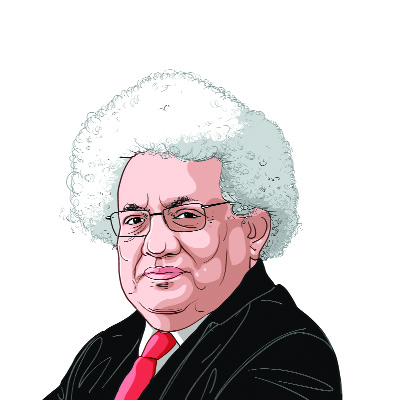Opinion The crisis
The market has seen that the fundamental problem of the Indian economy is politics.
The market has seen that the fundamental problem of the Indian economy is politics.
The market sees farther than the politicians. The market has seen that the fundamental problem of the Indian economy is politics. The economy is in a profound crisis. It has been drifting for the past two years and more. No urgency has been felt by the political leadership to tackle the crisis. Its busy with its own agenda that ignores economics.
There is an implicit consensus among all parties about the way the country will develop. This ideology is competitive populism. The debate on the food security Bill was one of those rare moments when we saw Parliament actually debate some piece of legislation in a systematic way,albeit after many false starts over many days. No party opposed the Bill despite noting the amount of money at stake. The leadership of the Congress party,in a rare speech,even acknowledged that the PDS system is 20-35 per cent wasteful and yet did not propose any alternative. No one else did either. The race was to see who could offer a larger subsidy than the UPA put on the table.
Politicians are agreed that the purpose of the economy is to generate money which they can spend as they like. There is no budget constraint. Money grows on trees. As far as possible,the poor do not need to be brought out of poverty. We need the poor to justify the expenditures that leak out to oil the electoral machines of political parties. The poor are the bread and butter of Indian politicians. They cannot do without them. This is why any news that poverty
has come down alarms the politicians so much. It is enough to keep the poor comfortable in their poverty. Every party finds poverty an indispensable item in its electoral armoury.
There is no longer any political party which believes in fiscal responsibility. The BJP may propose a mandir in its manifesto (I hope they dont) but they are unlikely to propose a balanced budget. In the 50s,the country was poorer but the budget was in surplus on revenue account and the government only borrowed for investment purposes. There was a commitment to fiscal prudence which came naturally to the leaders of the Independence movement. Then the Gen Next lost those good habits. The Swatantra Party was the last party that cared about decent economics,though they were derided as stooges of the capitalists. Stooges of the socialists dont believe in budget restraint.
A nation has the right to have whatever politics it likes. Since 1969,when Indira Gandhi recast the Indian party system in her personal image,parties have ceased to be internally democratic. She also deprived the legislature of any power to do as it pleases. Over time,the legislation against defections from political parties has deprived backbenchers of any power to disagree with their partys whip. The result is that members agitate or rush to the well,strictly in obedience to commands from their party whips. What may look like anarchy is actually organised disruption of business.
This has its logic,the logic of impotence. Opposition parties cant get anything done by debate as the Executive controls the business. They can only get their way through disruption. This was obvious in the latest fracas over the coal files. The power of the Executive is shown by the infrequency with which the Prime Minister speaks in Parliament. In any other Parliament,the Opposition would make government leaders appear and be accountable before Parliament. The Indian parliamentary dysfunction is entirely functional.
In a world like this,the only way to get anything done is get power either as a majority party or as part of a coalition. In power you are immune from the CBI and income tax raids. You have access to oodles of money since you are giving away national assets2G,coal blocks etcto your cronies. Black money is essential to finance elections. Without large expenditure programmes guaranteed to leak,the Indian democratic system would collapse.
Poverty and corruption are the twin pillars of Indian democracy. They are sacrosanct. If thanks to them the economy collapses,tough luck.





